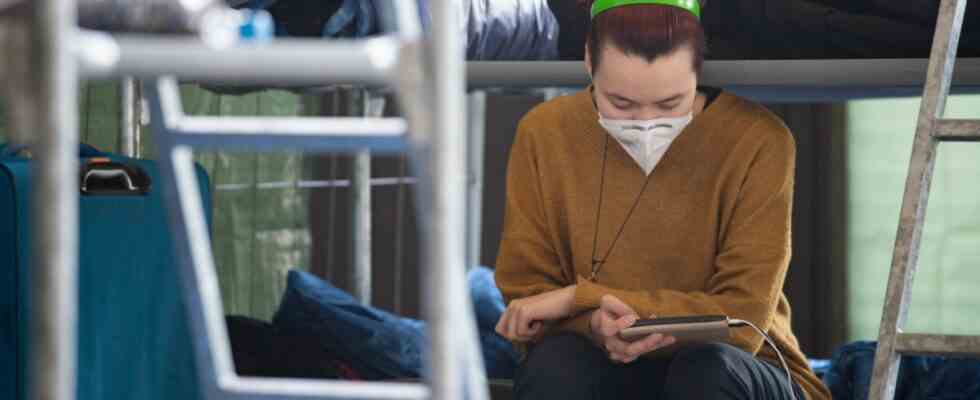More than 800 offers for private housing for refugees have come in in Augsburg since the outbreak of war in the Ukraine. Sometimes it is a room that is available for a few days. Sometimes someone offers a granny flat that can be occupied by refugees in the long term. In order to facilitate the placement of living space, the city relies on the “Integreat” app as a digital platform. Private individuals can post their offers themselves, refugees have direct access to them in their own language – and can contact the provider themselves.
Digital offers like Integreat make it easier for refugees to arrive in a foreign environment and save administrations a lot of effort. Integreat is probably the most widespread digital assistance for refugees in Bavaria. The cities of Munich and Nuremberg as well as many other districts and cities also use the offer. It’s not just about living space, above all the app – like other offers – provides information for refugees. The app currently offers help in 15 languages: Where do I have to go? Which forms do I need? Where is the nearest doctor, how do I use public transport? “We provide information about everything via the platform,” says Michael Hegele from the Ukraine coordination group of the city of Augsburg. Ukrainians who want to go to Augsburg sometimes even download the app in their home country – and thus arrive well prepared in the Swabian metropolis.
“Our goal is that the refugee aid can ultimately be supported completely digitally,” says Laura Schmitz from Integreat, which was developed in Augsburg. Municipalities also provide information via social networks such as Instagram or Facebook, but this is not necessarily advisable in terms of data protection. All information is guaranteed to be correct via the app, it comes directly from the local authorities on site and it is translated by professional offices. “Of course, the authorities are now overburdened, it’s an exceptional situation,” says Schmitz. Digital offers help to reduce the workload for administrations because they also help to avoid pointless visits to the authorities. A typical phenomenon among refugees is that they do not know which administrative act they have to go to which office. So, as a precaution, they register with many offices in order to at least get a correct answer somewhere – and thus block the appointments.
With an app like Integreat, they receive targeted information that is always up-to-date. Just last week, the Ministry of the Interior issued three letters to the municipalities on registering refugees. “What we would have printed on a flyer on Monday would have been out of date by Wednesday.” The information in the app is constantly updated and important information is sent via push notifications. In an anonymous survey among municipalities that use Integreat, an administrative employee said that after the introduction of the app, he now only advises 100 people personally instead of the previous 270. “I would say the relief is noticeable for the entire team, from the volunteers to the social workers to the mayor.”
Several apps inform refugees, but also helpers
Another team of developers from Munich has just developed the application “Was Wohin”, which is intended to provide information for those willing to donate exactly which goods are needed where. The federal government is currently working on the “Germany for Ukraine” platform, where refugees can see all the aid measures at a glance. Schmitz from Integreat does not see such offers as competition, on the contrary. But she would like more efficiency: Integreat operates as an NGO, the team makes the source code of the app freely accessible so that everyone could build on it, including the federal government – so you don’t have to laboriously work out what already exists in parallel. “It’s not about Integreat being printed everywhere in the end,” says Schmitz. Municipalities currently pay a service fee, otherwise the development team would not be able to keep their heads above water with donations alone. Especially since the app is constantly being further developed, with local job exchanges, for example, with learning aids for professional vocabulary and other information.
Michael Hegele in Augsburg notes that refugee work has become more digital compared to 2015, when Integreat was developed, because city employees often no longer see the refugees at all. “We don’t even see many of them anymore because they are housed privately somewhere. It’s very different than it used to be.” This can also be a disadvantage because the municipality lacks an overview. There are more ways to do this than there used to be. In this way, apartments in Augsburg can not only be brokered precisely in terms of the number of rooms. There are numerous filter options: If you bring dogs or cats with you, for example, you can look for pet-friendly accommodation.

